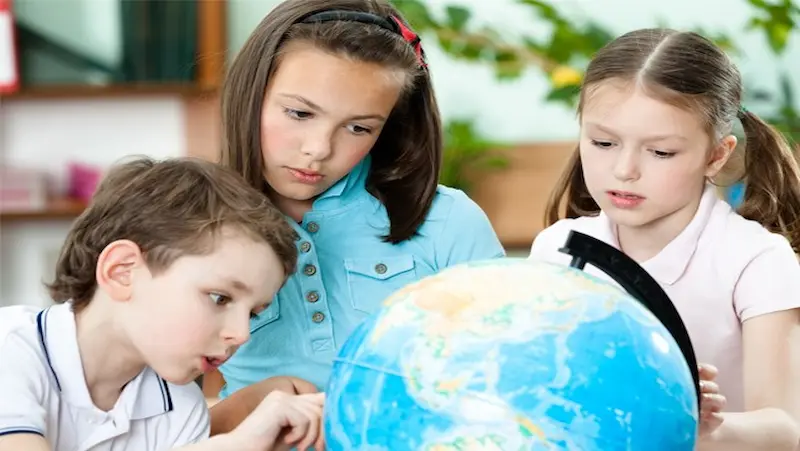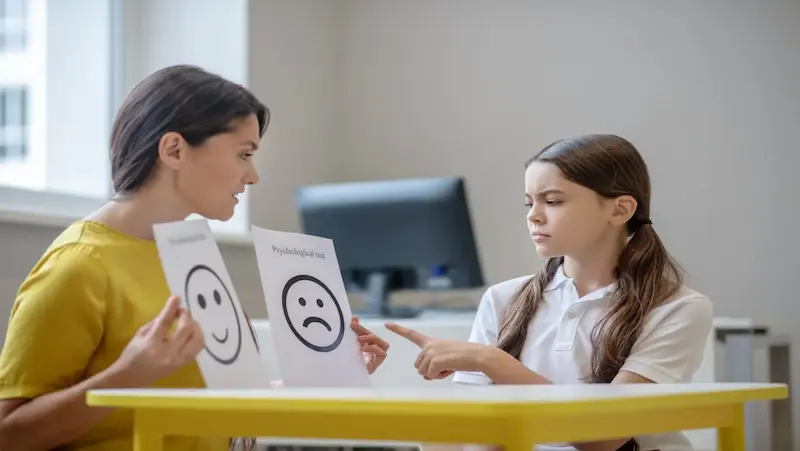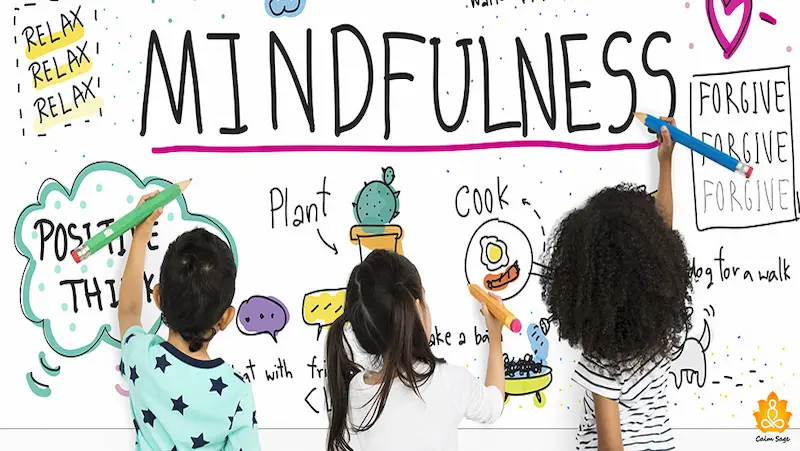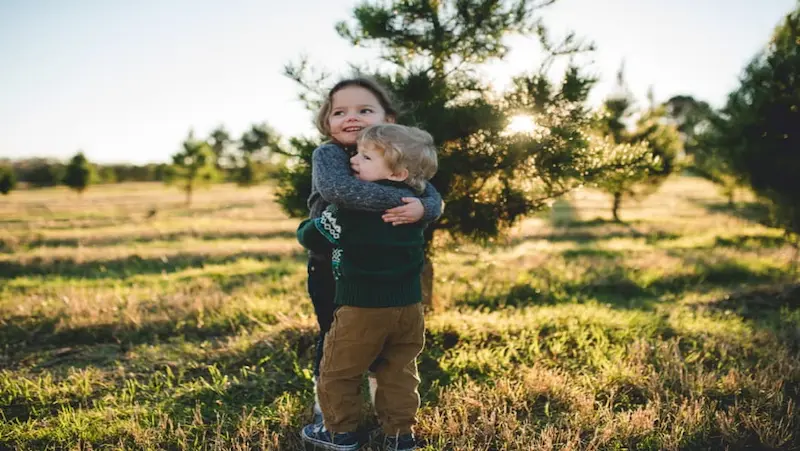Positive psychology for kids is a branch of psychology that focuses on enhancing well-being and promoting the positive aspects of the human experience. While traditionally applied to adults, its significance for children should not be overlooked.
Understanding the importance of positive psychology for kids is crucial as it provides them with essential tools to navigate life, build resilience, and cultivate a positive mindset. By fostering their emotional well-being and promoting healthy development, positive psychology empowers children to thrive and flourish in an ever-changing world.
Table of contents
Nurturing a Growth Mindset in Children
A growth mindset is a belief that abilities and intelligence can be developed through effort, practice, and perseverance. It empowers children to embrace challenges, learn from failures, and strive for continuous improvement.

Encourage a Positive Learning Environment
Creating a positive learning environment is essential for developing a growth mindset in children. Encourage them to view mistakes and failures as opportunities for learning and growth rather than as signs of incompetence.
Teach the Power of Yet
The word “yet” holds incredible power when it comes to developing a growth mindset. When children face challenges or encounter difficulties, teach them to use the word “yet” to reframe their thinking.
Emphasize Effort and Process
Help children understand that success is not solely determined by innate talent or intelligence, but also by effort and the learning process. Encourage them to set goals, break tasks into smaller manageable steps, and celebrate their progress along the way.
Embrace Challenges and Failure
Encourage children to embrace challenges and view them as opportunities for growth. Help them understand that making mistakes and experiencing failure is a natural part of the learning process. Teach them to see failures as stepping stones toward success, rather than barriers to it.
Model a Growth Mindset
Children learn by example, so it’s important for adults to model a growth mindset in their own lives. Demonstrate a positive attitude toward challenges and setbacks. Share stories of how you have overcome obstacles and learned from your own failures.
Building Emotional Intelligence Skills
Emotional intelligence encompasses various skills that allow individuals to recognize, understand, and regulate their own emotions while being aware of and empathetic toward the emotions of others. These skills include self-awareness, self-regulation, empathy, and effective communication.

Developing Emotional Intelligence in Children
Encourage emotional expression: Create a safe and non-judgmental environment where children feel comfortable expressing their emotions. Encourage them to talk about their feelings, whether positive or negative and validate their experiences. This approach helps children develop a vocabulary to express their emotions accurately.
Teach emotional vocabulary: Introduce children to a wide range of emotions and help them identify and label these emotions. By using specific emotional vocabulary, children can better understand and communicate their feelings. For example, instead of saying, “You seem upset,” you can say, “I see that you’re feeling frustrated. Would you like to talk about it?”
Model emotional intelligence: Children learn a great deal by observing the behavior of adults around them. Therefore, it is essential to model emotional intelligence by demonstrating self-awareness, managing your emotions effectively, and expressing empathy toward others. Be mindful of how you react to challenging situations and strive to respond in a calm and empathetic manner.
Managing Emotions Effectively
Identify emotions: Help children recognize and label their emotions accurately. Encourage them to pay attention to their physical sensations, thoughts, and behavioral cues associated with different emotions. This awareness enables them to identify and acknowledge their feelings effectively.
Develop self-regulation strategies: Teach children healthy strategies to manage their emotions, such as deep breathing exercises, mindfulness, physical activity, or engaging in creative outlets like drawing or writing. These techniques allow children to regain control and find constructive ways to cope with intense emotions.
Teaching Self-Awareness and Mindfulness Techniques
As children navigate their way through school, relationships, and various challenges, developing these skills can empower them with lifelong tools for resilience, emotional regulation, and overall well-being.

Why teach self-awareness and mindfulness to kids?
Emotional regulation: Self-awareness helps children recognize and understand their emotions, enabling them to manage them effectively. Mindfulness techniques further support emotional regulation by teaching kids to observe their thoughts and feelings without judgment.
Stress reduction: Mindfulness techniques, such as deep breathing exercises and meditation, can help kids reduce stress and anxiety. By bringing attention to the present moment, children can learn to let go of worries about the past or future, promoting a sense of calmness and focus.
Improved concentration and focus: Practicing mindfulness enhances attention spans and concentration abilities in children. By training their minds to stay focused on the present moment, kids can better engage in tasks and absorb information, leading to improved academic performance.
Practical techniques for teaching self-awareness and mindfulness:
Body awareness exercises: Encourage kids to pay attention to their bodies by engaging in activities such as yoga, stretching, or dance. Teach them to notice how different body parts feel and to connect physical sensations with emotions.
Emotion identification: Create a safe space for children to express and discuss their emotions. Provide them with a feelings chart or use storytelling to help them identify and label various emotions. Encourage them to talk about how different emotions feel in their bodies.
Mindful breathing: Teach kids deep breathing exercises as a powerful tool for self-regulation. Practice techniques like belly breathing, where they inhale deeply, fill their belly with air and exhale slowly. Incorporate breath awareness into everyday situations, such as before tests or during moments of frustration.
Guided imagery and visualization: Guide children through calming visualizations, encouraging them to use their imagination to create peaceful and positive mental images. For example, ask them to imagine themselves in a serene natural setting, describing the sights, sounds, and smells they experience.
Cultivating Gratitude and Appreciation
Gratitude is the quality of being thankful and showing appreciation for the positive aspects of life. It involves recognizing and acknowledging the goodness around us, regardless of its size or magnitude.

Benefits of Cultivating Gratitude in Kids:
a. Enhanced Emotional Well-being: Practicing gratitude can help children develop a positive mindset, leading to increased happiness and overall well-being. It allows them to focus on what they have rather than what they lack, fostering contentment and reducing feelings of envy or entitlement.
b. Improved Relationships: Grateful children are more likely to express kindness, empathy, and appreciation towards others. They learn to value the efforts and contributions of family, friends, and the wider community, leading to stronger and healthier relationships.
c. Resilience and Coping Skills: Gratitude helps children develop resilience and cope with challenges. By recognizing the positive aspects of difficult situations, they can reframe their perspectives and find solutions more effectively.
Practical Ways to Foster Gratitude in Kids:
a. Lead by Example: Children learn best by observing their parents and caregivers. Model gratitude by expressing appreciation for everyday moments, acts of kindness, and the efforts of others. Let them see you practice gratitude in your own life.
b. Daily Gratitude Rituals: Incorporate gratitude rituals into your child’s daily routine. This can be as simple as sharing one thing they are grateful for during family meals, keeping a gratitude journal, or ending each day with a bedtime gratitude reflection.
c. Encourage Thank Notes or Acts of Kindness: Teach your child the importance of expressing gratitude by writing thank-you notes for gifts or acts of kindness received. Encourage them to perform small acts of kindness themselves, such as helping a friend or family member or showing appreciation to their teachers.
Conclusion
In conclusion, empowering kids with positive psychology tools holds immense potential for creating a brighter future. Positive psychology techniques for children offer long-term benefits in their overall development.
By equipping them with tools to cultivate optimism, resilience, gratitude, and emotional well-being, we enhance their ability to navigate challenges and lead fulfilling lives. Investing in positive psychology interventions for children fosters their mental and emotional growth, setting a strong foundation for their future success and happiness.
Check out Brightchamps page to learn about more such free and educational content. Also, don’t forget to check out this blog, where we empower the future with essential financial education for kids, nurturing their financial confidence from an early age!
Frequently Asked Questions
A1. Positive psychology for kids is a branch of psychology that focuses on promoting well-being and positive emotions in children. It emphasizes strengths, resilience, and the development of positive attitudes and behaviors.
A2. Positive psychology is important for kids as it helps foster their emotional well-being, resilience, and overall mental health. It focuses on building positive relationships, developing a growth mindset, and cultivating a sense of purpose and meaning in their lives.
A3. Positive psychology can benefit children’s mental health by promoting positive emotions, building self-esteem, enhancing resilience, and reducing the risk of mental health issues. It equips children with skills to cope with challenges, form healthy relationships, and lead fulfilling lives.
A4. Practical strategies for implementing positive psychology with kids include encouraging gratitude and positive thinking, promoting acts of kindness, fostering mindfulness and self-reflection, teaching problem-solving skills, and providing opportunities for play and creativity.
A5. Parents and educators can incorporate positive psychology into children’s lives by modeling positive behaviors and attitudes, providing a nurturing and supportive environment, offering praise and encouragement, teaching emotional intelligence, and incorporating positive psychology activities and exercises into daily routines.
A6. Some recommended resources or books on positive psychology for kids include “The Happy Child: Changing the Heart of Education” by Steven Harrison and “Positive Psychology for Overcoming Depression: Self-Help Strategies for Happiness, Inner Strength, and Well-Being” by Miriam Akhtar. Additionally, websites such as PositivePsychology.com and Greater Good Science Center offer valuable information and resources on positive psychology for children.












